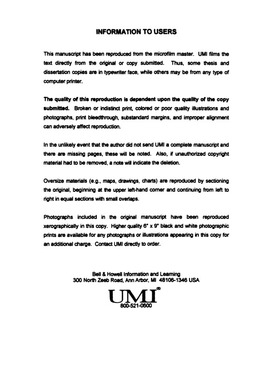| dc.contributor.advisor | Chiodo, John, | en_US |
| dc.contributor.author | Nazzal, Allison Kay. | en_US |
| dc.date.accessioned | 2013-08-16T12:30:50Z | |
| dc.date.available | 2013-08-16T12:30:50Z | |
| dc.date.issued | 2000 | en_US |
| dc.identifier.uri | https://hdl.handle.net/11244/5926 | |
| dc.description.abstract | When at-risk students who participated in a six-week tutoring project were compared to at risk students who did not participate as a tutor, significant differences were found in academic performance in math class and on the state standardized test of mathematical performance. Significant differences were not found in attendance rates between the two groups during the tutoring period; however, the tutors missed far fewer days while tutoring than in the six-week period prior to tutoring. The qualitative data indicated that during the tutoring period the tutors were both internally and externally motivated to attend school. Significant differences were not found in the number of incidences of misbehavior in school between the two groups; however, the qualitative data indicated that the tutors improved their behavior in the classroom, while the non-tutors did not. Qualitative data from the study indicated that tutoring reinforced the tutors' perceptions of the importance of school, improved their perceptions of how well they thought they were doing in school, and decreased feelings of alienation. Both the qualitative and quantitative data of this study supported the use as peer tutoring as an alternative means of lessening the potential effects of several factors that put low socioeconomic students at risk for dropping out of school. | en_US |
| dc.description.abstract | This study was an examination of how participation as a mathematics tutor would affect middle school students identified as at risk for dropping out of high school. Utilizing both quantitative and qualitative techniques in a quasi-experimental design, this study examined how participation as a tutor affected students identified as at risk due to low socioeconomic status and one or more of the following risk factors previously identified in the literature as factors that put students at risk for dropping out of school: failure in school or on standardized tests, poor attendance in school, and misbehavior in school. Additionally, this study examined how tutoring affected other factors that may put students at-risk for dropping out of school: perceptions of the relevance of school, perceptions of success in school, and feelings of alienation in school. | en_US |
| dc.format.extent | vii, 183 leaves : | en_US |
| dc.subject | High school dropouts United States. | en_US |
| dc.subject | Education, Secondary. | en_US |
| dc.subject | Education, Curriculum and Instruction. | en_US |
| dc.subject | Dropouts United States Prevention. | en_US |
| dc.subject | Tutors and tutoring United States. | en_US |
| dc.title | Peer tutoring and at-risk students: The effects of peer tutoring on attendance rates, misbehavior in school, and academic progress for students identified as at risk for dropping out of high school. | en_US |
| dc.type | Thesis | en_US |
| dc.thesis.degree | Ph.D. | en_US |
| dc.thesis.degreeDiscipline | Department of Instructional Leadership and Academic Curriculum | en_US |
| dc.note | Source: Dissertation Abstracts International, Volume: 61-02, Section: A, page: 0483. | en_US |
| dc.note | Major Professor: John Chiodo. | en_US |
| ou.identifier | (UMI)AAI9962955 | en_US |
| ou.group | Jeannine Rainbolt College of Education::Department of Instructional Leadership and Academic Curriculum | |
